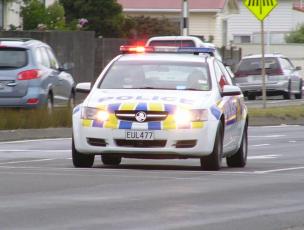Police release evaluation of Police Safety Orders
Mon 18 May 2015
New Zealand Police have released an evaluation of the effectiveness of Police Safety Orders (PSOs) during the introduction period 1 July 2010 ...

New Zealand Police have released an evaluation of the effectiveness of Police Safety Orders (PSOs) during the introduction period 1 July 2010 to 31 December 2012.
Introduced under the Domestic Violence Amendment Act 2009, PSOs allow Police to take action to protect victims of family violence when there is insufficient evidence for an arrest. A PSO requires the perpetrator ("Bound Person") to leave the residence and not return or contact the victim ("Person at Risk") for a prescribed period of time, up to a maximum of five days.
The report, An Outcome Evaluation of Police Safety Orders, prepared by Dr Elaine Mossman, Dr Venezia Kingi, Nan Wehipeihana and the New Zealand Police Evaluation and Research Team, was undertaken to understand and assess PSO effectiveness and inform policy and practice relating to their use.
Based on four evaluation objectives, the report concluded that "PSOs have been effective in meeting their short-term objectives, particularly in ensuring the immediate safety of victims and their children, and providing the opportunity for Persons At Risk to consider and seek support." The report identified three main areas for improvement:
- "Improve the monitoring, recording process, and level of consequences of breaches
- Maximise the opportunity to support both parties
- Improve frontline practice to ensure consistency in the issuing of PSOs and recording of family violence investigations."
The report noted that the areas for improvement largely reflected the formative evaluation findings and therefore greater effort would be required to make progress in these areas.
In response to the evaluation findings, the New Zealand Police Family Violence Manager, Inspector Fleur De Bes of the National Prevention Centre, announced four strategies Police will implement. These were:
- Roll out of train the trainer sessions nationally for all frontline Sergeants and Field Training Officers to improve the way Police use PSOs to reduce family violence
- Increased support for the Person at Risk (and the Bound Person) through a timely referral to a support agency where possible
- Increased detection of PSOs breaches by District Command Centres tasking officers to follow up all Persons at Risk while the PSO is in place
- Development of a quality assurance form for all Protection Order and PSO files to provide increased consistency in reporting.
Inspector De Bes said "New Zealand Police are always striving to improve our victim-focus and ongoing work programme to address family violence. PSOs are a valuable tool to help Police protect family violence victims, and we are focused on delivering staff training and consistency of approach, and improving the quality of investigations and file preparation."
Women's Refuge welcomed the release of the report. Refuge was encouraged by a Police invitation to partner with them in the development of an enhanced PSO training programme, including primary aggressor identification training. CEO Dr Ang Jury said "While it has always been our position that PSOs are an important part of the police response to domestic violence, we have held long standing concerns that their implementation could lead to unintended consequences. Some of our concerns have sadly played out as evidenced by some of the findings in the evaluation. PSOs should never be used when there is evidence of physical violence or any other offence nor should they be used as a substitute for Police undertaking thorough investigations into alleged domestic violence offending."
Shine also applauded the Police for commissioning the evaluation, and said it agreed with the concerns and areas of improvement it identified. Executive Director Jane Drumm said "Shine frontline staff working with victims and offenders reported that PSOs are frequently issued when there appeared to have been sufficient evidence for Police to make an arrest. When an arrest could and should have been made, the offender is not receiving the really critical consequence of mandated attendance at a stopping violence programme, and the victim’s opportunity for longterm safety is being severely compromised."
Shine also emphasised that PSOs needed to be issued for a sufficient amount of time for community agencies like Shine to be able to safely contact and work with the victim while the offender is required to stay away. Shine said, "In our experience, the many PSOs that are issued for 24 hours do not allow this to happen, and there appears to be no criteria to guide frontline police in their decision about how long to issue the PSO for."
Media
Increase in Police Safety Orders being issued in South Canterbury, Timaru Herald, 26.02.2016
Safety orders are a great police tool, Timaru Herald, 13.05.2015
More training to protect family violence victims, Radio NZ, 08.05.2015
Intervention programme addresses family violence, Voxy, 27.03.2013
Image: 2008-2009 Holden VE Commodore Omega sedan (New Zealand Police) 01, by Magnus Manske. Licence: Attribution 2.0 Generic (CC BY 2.0)
Image: Magnus Manske


